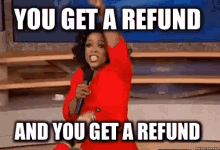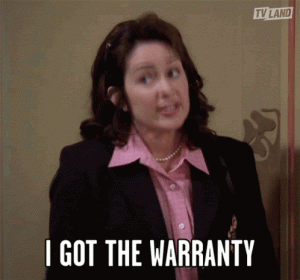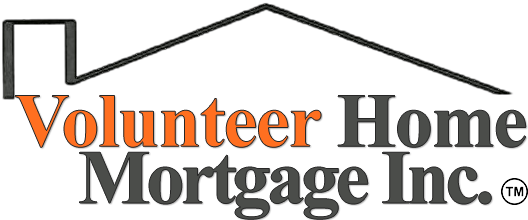
Have you thought about how you’ll use your tax refund? If you’re like most Americans, you want to be strategic with these extra funds. A study found that about half of consumers put their refunds in savings, and about a third pay down debt.
Those are great moves for future home buyers. But they aren’t your only options. Today, we want to share five ways you can use your tax refund to buy a house — and how even your savings can be strategic! Let’s get started!

1. Put Your Refund Toward Your Down Payment
Every bit counts when you’re saving for a down payment. Contrary to popular belief, lenders don’t require you to have a full 20% down payment. However, they may have you pay for private mortgage insurance (PMI) if you can’t meet that threshold. PMI is a monthly payment you make, on top of your house payment, to insure the lender until you’ve paid off 20% of the house. So, the sooner you get to 20%, the better — and your refund can give you a big boost.
The average tax refund is about $2,827. Normally, it might take you months to save that amount. (In a sense, of course, it has! It’s simply all the taxes you’ve overpaid for a year.) But now you get it all in one big chunk. So, consider putting it toward your biggest expense. Not only will you reach your goal faster, but your rapid progress will encourage you to keep going!

2. Pay of Debt to Qualify for a Better Loan
We mentioned paying off debt earlier. But why is that strategic for homebuyers? It’s not just about having one less bill each month (though that certainly does help!). It’s also about your credit score.
Did you know that about 30% of your credit score is determined by your level of debt? Taking out some debt is good — if you make your payments on time and show that you can handle it. However, a high credit card balance or late payments can greatly damage your score. If you’ve struggled with either of those things, consider putting your tax refund toward your debts. By lowering your debt balance, you can show lenders you’re serious about your debts and raise your credit score.

3. Save it to Remodel a Lower-Budget House
According to a 2019 Homelight survey, if you spend $2,803 painting the exterior of your house, its worth will increase by $4,228. New wood floors similarly showed a 51% return on investment when you sell. Why are we telling you this? You’re looking to buy, not sell!
Here’s the thing: You need to understand why your house costs what it does. Often, you’re paying a premium for simple renovations you could do yourself for a lot less money. This isn’t true for every renovation. It’s important to do your homework. But if you’re willing to put in some extra work, you can buy a lower-budget house and still make it the cutest house on the block. If you’re up for the challenge, save your tax refund, and you’ll be ready to renovate when the time comes!

4. Save Your Refund for Unexpected Expenses
At Volunteer Home Mortgage, we try to educate you so you face minimal surprises. Still, the homebuying experience can be unpredictable, and it’s good to have some reserves.
An inspection might reveal problems too big for you to move forward. You’ll still have to pay for that inspection, plus the inspection for the house you ultimately buy. You and the seller may agree to split the cost for repairs that have to be done before the appraisal. In a competitive market, you may pay your closing costs. Whatever the surprise, having your tax refund on hand can keep you moving forward.

5. Purchase a Home Warranty
A home warranty is pretty much what it sounds like. It covers a variety of things in your house, from your HVAC system to your refrigerator. If those things break within your first year of owning the house, the home warranty helps pay for repairs or replacements. The home warranty itself usually costs around $500 to $700, but it can save you thousands of dollars.
This is an item that the seller traditionally pays for. But in today’s competitive market, you may need to pay for it yourself. Talk with your realtor about this before negotiations. If the seller won’t pay for it, your tax refund should be able to cover the expense.

Curious About Home-Buying Expenses?
When you’re buying your first home, the process can feel a bit overwhelming. At Volunteer Home Mortgage, we can show you what to expect and walk with you through the surprises.
Give us a call or email us! One of our experts can answer your questions and guide you through the process!

